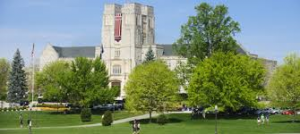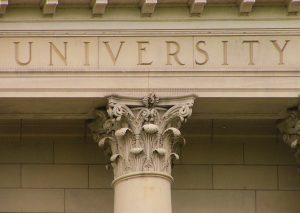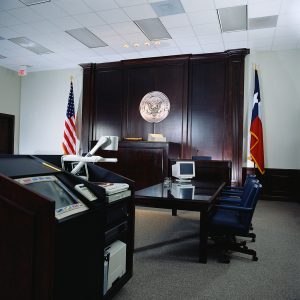MIT 2014 Community Attitudes on Sexual Assault
November 6, 2014
In the Spring of 2014, MIT launched a survey of all of its undergraduate and graduate students (just under 11,000), related to issues of student sexual assault. More than 3,800 undergraduate and graduate students responded, or about 35% of the institution’s total student population. (This 35% consisted of 46% of surveyed undergraduate females, 35% of undergraduate males, 37% of graduate females and 30% of graduate males.) As noted by MIT Chancellor Barnhart last week in the release of the survey results, “[b]ecause the survey was not a random sample and was voluntary, and the topic of unwanted sexual behaviors is focused, we know the results reflect a degree of self-selection. Since it is impossible to tell how this may have altered the results, it would be a mistake to use these numbers to generalize about the prevalence of unwanted sexual behavior in the lives of all MIT students.” Nonetheless, she noted, the survey “clearly tells us that, like many other colleges and universities, we face a serious problem.” While the full results of the survey are available online, some of the many interesting survey results are noted below:
- 14% of undergraduate females indicated that they had experienced stalking, being followed and/or receiving repeated unwanted messages/texts/emails that made them uncomfortable (2% of undergraduate males reported similar experiences);
- 10% of undergraduate females reported experiencing a sexual assault and 5% reported having been raped (undergraduate male responses were 2% and 1% respectively);
- 72% of all respondents indicated that another MIT student was responsible for the unwanted sexual behavior (which was not limited to sexual assault or rape) they experienced. For 98% of the females, the perpetrator was a male; for male respondents the perpetrators were males in 35% of the instances and females in 67%.
- 40% of female and male undergraduate respondents indicated that the perpetrator was a friend;
- While 63% of those experiencing an unwanted sexual experience reported it to someone (90% to a friend, 19% to family, 13% to medical personnel), only 5% reported the experience to someone in an official capacity;
- Respondents who indicated that they had experienced unwanted sexual behavior were asked of any thoughts or concerns that came to mind in deciding whether to share their experiences. Of those responding:
- 72% did not think the incident was serious enough to officially report
- 55% indicated that it was not clear that harm was intended
- 47% did not want any action to be taken
- 44% felt that they were at least partly at fault or it wasn’t totally the other person’s fault (results from another portion of the survey indicated that 20% of female undergraduate respondents and 25% of male undergraduate respondents “agreed” or “strongly agreed” with the statement: “When someone is raped or sexually assaulted, it’s often because the way they said ‘no’ was unclear or there was some miscommunication.”);
- 53% of respondents (with the same percentage for both females and males) “agreed” or “strongly agreed” that “Rape and sexual assault can happen unintentionally, especially if alcohol is involved.”
- 73% of female respondents and 76% of male respondents “agreed” or “strongly agreed” that they feel confident in their ability to judge if a person is too intoxicated to consent;
- With respect to bystander activity, 91% of females and 89% of males “agreed” or “strongly agreed” that their friends would watch out for them if it seemed like something bad might happen to them and that more than 9 out of 10 respondents “agreed” or “strongly agreed” that most MIT students would respect someone who did something to prevent a sexual assault. Yet 56% of respondents who knew a perpetrator did not confront that person about their behaviors or take any action, and 50% of females and 59% of males “do not usually try to distract someone who is trying to take a drunk person to do something sexual.”
As noted, the voluntary nature of the survey and its narrow focus make it hard to know why students self-selected in or out of the survey and whether it was in a way that might bias the results. Nonetheless, the University noted that while that does mean that the rates based on those who responded cannot be extrapolated to the MIT population as a whole and cannot be validly compared to results from other surveys, it does not make the results any less accurate. Nor does it make those results any less important. In the coming 12-18 months, either as a result of the federal government’s “encouragement” that institutions undertake surveys or pending legislation that might require them (e.g., Senator McCaskill’s Campus Accountability and Safety Act we undoubtedly will see many more colleges and universities engage in similar efforts in as they attempt to better understand the dynamics on their campuses, and how they can better address this issue.


 A few weeks ago,
A few weeks ago,  The United States Court of Appeals for the Eleventh Circuit issued a long-awaited decision in the Georgia State e-reserves copyright case on October 17, 2014. The Court of Appeals reversed and remanded to the District Court for reconsideration in light of its opinion rejecting that court’s formulaic fair use analysis. In 2008, three publishers (Cambridge University Press, Oxford University Press, and Sage Publications) filed suit in the Northern District of Georgia, alleging that Georgia State University’s e-reserves system – through which students could access electronic content posted by faculty – infringed copyrights held by the publishers. In 2012, the District Court issued an order finding that the university had infringed the publisher’s copyrights in several instances, but that the fair use defense applied to the majority of the alleged infringements. The court applied the four factors of a fair use defense: (1) the purpose and character of the use; (2) the nature of the copyrighted work; (3) the amount and substantiality of the portion taken; and (4) the effect of the use upon the potential market. The court granted declaratory and injunctive relief to the publishers, but ultimately found that the University was the prevailing party and awarded costs and attorneys’ fees. On appeal, the Court of Appeals reviewed the District Court’s application of the four factors, as well as the District Court’s balancing of the outcome of the four factors, noting that because of the circumstances of this case some of the factors weigh more heavily on the fair use determination than others. Regarding the first (the purpose and character of the use) and fourth (the effect of the use upon the potential market for or value of the copyrighted work) fair use factors, the Court of Appeals affirmed the District Court’s holdings that these weighed in favor of a fair use defense. On the second factor, the nature of the copyrighted work, the Court of Appeals reversed, holding that the District Court should have evaluated each work copied to determine whether it contained “evaluative, analytical, or subjectively descriptive material that surpasses the bare facts necessary to communicate information.” If the work contained more than was necessary, then it should have weighed in favor of the publishers or been neutral, although the Court noted that this factor is largely unimportant since the works at issue are not fictional works. On the third factor, the District Court had utilized a quantitative test with respect to the “amount and substantiality taken” in relation to the copyrighted work as a whole, relying on the 10% or one chapter approach set forth in the “Classroom Guidelines” which form part of the legislative history of the Copyright Act. In rejecting that type of blanket approach, Court of Appeals found that the lower court should have applied a more individualized fair use analysis, “considering the quantity and quality of the material taken, including whether the material taken constituted the heart of the work.” The Court of Appeals emphasized that the Classroom Guidelines have never been codified and are too formulaic for a balanced fair use analysis. The Court of Appeals vacated the injunction, declaratory relief, and award of attorney's fees and costs, and remanded to the lower court for further proceedings. The Way Forward for Universities Even though this case will continue, the Court of Appeal’s ruling provides useful guidance to institutions of higher education. Specifically, a formulaic approach to fair use rather than a case-by-case inquiry opens a fair use analysis to criticism and attack. As a result, copyright policies or guidelines should require an individualized analysis of the amount taken of a copyrighted work in relation to the work as a whole, rather than simply relying on the 10% or one chapter rubric set forth in the “Classroom Guidelines.” Both the quantity and the quality of the material taken must be considered under the third factor, including whether the material taken constitutes “the heart of the work,” and whether the material used is excessive in light of the purpose of the use and the threat of market substitution.
The United States Court of Appeals for the Eleventh Circuit issued a long-awaited decision in the Georgia State e-reserves copyright case on October 17, 2014. The Court of Appeals reversed and remanded to the District Court for reconsideration in light of its opinion rejecting that court’s formulaic fair use analysis. In 2008, three publishers (Cambridge University Press, Oxford University Press, and Sage Publications) filed suit in the Northern District of Georgia, alleging that Georgia State University’s e-reserves system – through which students could access electronic content posted by faculty – infringed copyrights held by the publishers. In 2012, the District Court issued an order finding that the university had infringed the publisher’s copyrights in several instances, but that the fair use defense applied to the majority of the alleged infringements. The court applied the four factors of a fair use defense: (1) the purpose and character of the use; (2) the nature of the copyrighted work; (3) the amount and substantiality of the portion taken; and (4) the effect of the use upon the potential market. The court granted declaratory and injunctive relief to the publishers, but ultimately found that the University was the prevailing party and awarded costs and attorneys’ fees. On appeal, the Court of Appeals reviewed the District Court’s application of the four factors, as well as the District Court’s balancing of the outcome of the four factors, noting that because of the circumstances of this case some of the factors weigh more heavily on the fair use determination than others. Regarding the first (the purpose and character of the use) and fourth (the effect of the use upon the potential market for or value of the copyrighted work) fair use factors, the Court of Appeals affirmed the District Court’s holdings that these weighed in favor of a fair use defense. On the second factor, the nature of the copyrighted work, the Court of Appeals reversed, holding that the District Court should have evaluated each work copied to determine whether it contained “evaluative, analytical, or subjectively descriptive material that surpasses the bare facts necessary to communicate information.” If the work contained more than was necessary, then it should have weighed in favor of the publishers or been neutral, although the Court noted that this factor is largely unimportant since the works at issue are not fictional works. On the third factor, the District Court had utilized a quantitative test with respect to the “amount and substantiality taken” in relation to the copyrighted work as a whole, relying on the 10% or one chapter approach set forth in the “Classroom Guidelines” which form part of the legislative history of the Copyright Act. In rejecting that type of blanket approach, Court of Appeals found that the lower court should have applied a more individualized fair use analysis, “considering the quantity and quality of the material taken, including whether the material taken constituted the heart of the work.” The Court of Appeals emphasized that the Classroom Guidelines have never been codified and are too formulaic for a balanced fair use analysis. The Court of Appeals vacated the injunction, declaratory relief, and award of attorney's fees and costs, and remanded to the lower court for further proceedings. The Way Forward for Universities Even though this case will continue, the Court of Appeal’s ruling provides useful guidance to institutions of higher education. Specifically, a formulaic approach to fair use rather than a case-by-case inquiry opens a fair use analysis to criticism and attack. As a result, copyright policies or guidelines should require an individualized analysis of the amount taken of a copyrighted work in relation to the work as a whole, rather than simply relying on the 10% or one chapter rubric set forth in the “Classroom Guidelines.” Both the quantity and the quality of the material taken must be considered under the third factor, including whether the material taken constitutes “the heart of the work,” and whether the material used is excessive in light of the purpose of the use and the threat of market substitution. Effective June 14, 2014, the
Effective June 14, 2014, the 
 Following the lead of North Carolina last year, members of the Virginia legislature have become the latest to propose
Following the lead of North Carolina last year, members of the Virginia legislature have become the latest to propose